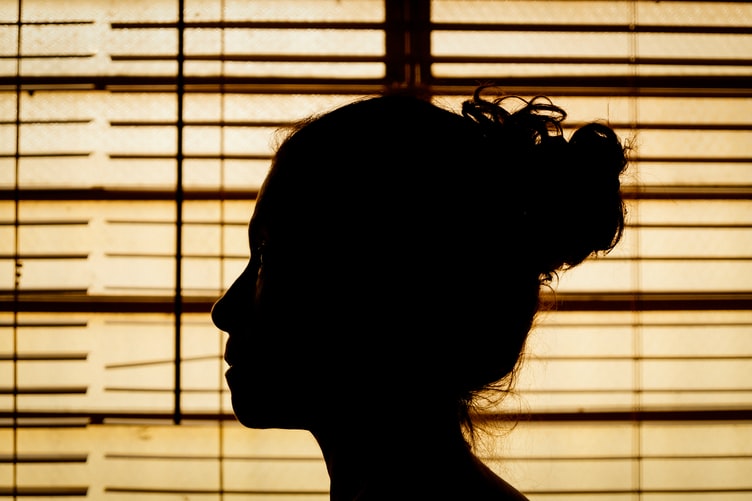
For millions of people across the world, home is far from a safe place to be. As countries have entered into periods of lockdown, those experiencing domestic violence, predominately women, have been placed at greater risk of abuse, as self-isolation has trapped them in their homes with their perpetrators.
Since lockdown began, reports of domestic violence across the globe have skyrocketed, and the UK is no exception. During the first three weeks of lockdown (23rd March-12th April), pioneering project Counting Dead Women identified at least 16 domestic abuse killings [1]. This is more than double than what would be expected over a three-week period. Last week, domestic abuse charity Refuge reported that calls to their Nation Domestic Abuse Helpline have on average increased by 66% weekly, and visits to their website have seen a 950% increase since to coronavirus crisis began [2].
Domestic abuse services were already stretched prior to the pandemic. Women’s Aid’s 2019 Annual Audit found that there was a deficit of 1,715 refuge bed spaces [3]. A shortfall which led to 64% of refuge referrals being refused in 2018-19 [4]. Social distancing measures also place greater challenges on domestic abuse services. Many communal refugees have not been able to take in new survivors due to lockdown and there have been restrictions on relocating women and children into long-term housing. This makes it even harder for already stretched domestic violence services to support the increase in demand that is occurring across the country.
The Domestic Abuse Bill
The coronavirus crisis has highlighted and exacerbated the need for a bold policy response to ensure that all those experiencing domestic abuse can access the support that they need. That’s why the Domestic Abuse Bill (primarily covering England and Wales), which is currently making its way through parliament, is a welcomed opportunity to deliver a vital change to our response to domestic abuse.
However, as has been identified by numerous domestic abuse charities, to ensure that the bill truly creates a response that works for all abuse survivors there are several amendments that need to be made. These include:
- Funding: Whilst the bill has proposed statutory duty on local authorities to provide accommodation for domestic abuse survivors, no commitment has been made to ensure that local authorities have access to emergency cash or sustainable funding which will allow them to provide this support.In fact, Women’s Aid estimates that an annual commitment of £393 million is needed to sustain domestic abuse services and prevent women and children from being turned away from refuges [5]. The bill must include increased funding to domestic abuse services to ensure they can keep providing their vital, lifesaving services.
- Giving survivor’s priority need: The domestic violence bill primarily focuses on a criminal justice response to protecting survivors and largely fails to consider the need for a more wider societal response such as housing provision. Survivors of domestic abuse are not automatically considered as being in ‘priority need’ for accommodation if they become homeless and local authorities will only consider survivors as ‘priority need’ if the authority is satisfied that they have met an additional ‘vulnerability’ test. There are concerns that by leaving it down to the local authorities discretion, women who need help will be turned away. Women’s Aid ‘No Woman Turned Away’ Project has highlighted this concern. In 2016-17, their research found that 19% of the survivors supported by the project has been prevented by local housing authorities from a valid homeless application [6]. To ensure domestic violence legislation supports the safety of all survivors, it is imperative all individuals fleeing abuse are considered to be in priority need of housing.
- Protecting migrant women: Receiving the necessary help to escape abuse should not dependent on immigration status. Migrant women who have No Recourse to Public Funds (NRPF) face significant barriers to accessing support services. This includes refuges. The costs of refuge services are largely met through housing benefit, which those with NRPF are unable to access. Women’s Aid identified that over a quarter of women supported by their ‘No Woman Turned Away’ project had NRPF [7]. The bill must extend support to women with No Recourse to Public Funds to ensure that all women can access the support they need, regardless of their immigration status.
What can you do?
The bill passed its second reading in parliament on Tuesday 28th April 2020, and is due to go to the public bill committee, where members will scrutinise the bill line by line and make any necessary amendments. The committee is due to meet between 4th and 17th June 2020.
We are inviting you to write to the MPs sitting on the bill committee (you can find their details here) telling them about what is missing from the bill and how it might be amended to ensure it supports everyone experiencing domestic violence.
You can download a template letter to use here:
The coronavirus outbreak has highlighted the urgent need for significant policy change to protect survivors of domestic abuse. Will you join us in raising your concerns to the bill committee to ensure it’s a bill that truly protects all experiencing domestic abuse?
